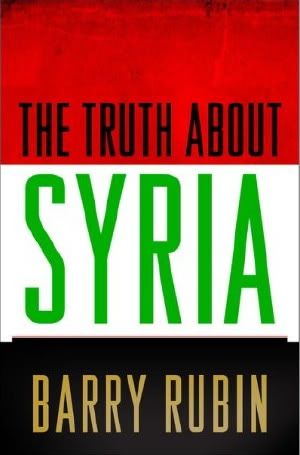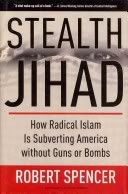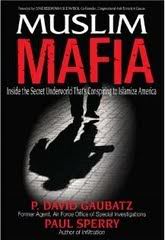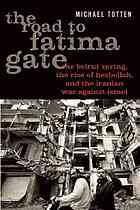http://www.joelstrumpet.com/?p=2341
Newsweek: Archibald Wavell himself could scarcely have imagined how horribly accurate his prediction would prove to be. Having watched in dismay as the victorious European powers carved up the Ottoman Empire after World War I—”the war to end war”—the British officer commented that they had instead created “a peace to end peace.” And sure enough, the decades since have spawned a succession of colonial misrule, coups, revolutions, and an epidemic of jihadist violence. The U.S.-led invasion of Iraq in 2003 could be viewed as a last-ditch attempt by the world’s sole remaining superpower to impose order on the region. Instead, the net result was to create a power vacuum, leaving Iraq too weak to counterbalance its neighbors and threatening to destabilize the whole map.
Turkey, the old seat of Ottoman power, did its best to stay out of that fight, refusing even to let U.S. forces cross Turkish soil for the 2003 invasion. Still, it’s the Turks—not the Iranians, as many observers claim—who are now emerging as the war’s real winners. In economic terms Turkey is running neck and neck with Iran as Iraq’s biggest trading partner, even as most U.S. businesses sit helplessly on the sidelines. And in terms of regional influence, Turkey has no rival. The country’s stern-faced prime minister, Recep Tayyip Erdogan, is working to consolidate that strength as he asserts Turkey’s independence in a part of the world long dominated by America. Next week he’s in Washington to meet with President Obama, but only a few weeks ago he stood shoulder to shoulder with his “good friend” Mahmoud Ahmadinejad in Tehran and defended Iran’s nuclear program.
That’s only one example of the behavior that’s disturbing many of Turkey’s longtime NATO partners. Among the biggest worries has been the souring of ties with Israel, once Turkey’s close ally, over the military offensive in Gaza earlier this year that human-rights groups say killed more than 1,400 Palestinians. Erdogan walked out of the World Economic Forum in protest over the deaths, and recently scrapped a decade-old deal allowing the Israeli Air Force to train over Turkish territory. At the same time, the Turkish prime minister has repeatedly supported Sudan’s president, Omar al-Bashir, claiming he couldn’t possibly be guilty of genocide in Darfur because he’s a “good Muslim.” Right now there are “more points of disagreement than of agreement” between Washington and Ankara, says Philip Gordon, Obama’s point man on Turkey at the State Department.
What scares Washington most is the suspicion that Ankara’s new attitude may be driven less by the practical pursuit of Turkey’s national interest than by thinly concealed Islamist ideology. Erdogan has always denied mixing religion and politics, but his ruling Justice and Development Party (known by its Turkish initials, AKP) has been investigated repeatedly by Turkey’s top courts on charges of undermining Turkey’s constitutional commitment to a strictly secular state. But official policy notwithstanding, Turkish attitudes toward Europe have displayed a marked cooling over the past five years, and a corresponding rise in hostility toward Western institutions like the International Monetary Fund. “No one in the government has made any attempt to reverse rampant anti-Americanism in Turkey,” says Kemal Köprülü of the independent ARI think tank. “The government cannot admit it, but most decision making in foreign and domestic policy simply doesn’t take Western values into account.”
On the other hand, Turks could be excused for thinking that Western decision makers don’t always lose sleep over Turkish interests. During the Cold War, Washington did anything necessary to stabilize the region and keep the Kremlin from gaining ground, often backing nominally pro-Western despots like the Shah of Iran and the Turkish generals who seized power from civilian governments three times in as many decades. The result was a disaster for America; it ended up with unreliable allies who were hated by their own people. In Turkey, the cumulative anti-U.S. resentment peaked in 2003 when the Bush administration pressed Ankara to let U.S. forces invade Iraq through Turkish territory—a plan that was derailed only at the last moment by a parliamentary revolt.
That was the low point of Turkey’s relationship with the United States. But it was also the start of Turkey’s rise to economic recovery and regional influence, and the beginning of a new kind of relationship with Washington. Indeed, Turkey’s new standing in the region has a chance of transforming the country into something far more valuable to Washington than a subservient tool or proxy. The Turks say they’re seeking to become what Turkish Foreign Minister Ahmet Davutoglu calls a “partner to solve the region’s problems.” Whatever ambitions they may have harbored in earlier years, it’s only in this decade—especially since 2002, when Erdogan and the AKP came to power—that Turkey has had the economic and political strength, as well as the military presence, to fill such a position.
Turkey’s economy has more than doubled in the past decade, converting the nation from a backwater to a regional powerhouse. At the same time, its financial focus has moved closer to home: Turkey now conducts more trade with Russia, Iraq, and Iran than it does with the EU. Energy politics have also favored the Turks, who find themselves astride no fewer than three competing energy supply routes to Europe—from Russia, from the Caspian, and from Iran. Years of reform and stability are paying off as well. Ankara is on the verge of a historic deal with its Kurdish minority to end an insurgency that has left 35,000 dead in the past quarter century. In turn, Turkey is making peace with neighboring countries that once supported the insurgents, such as Syria, Iran, and Armenia. The principle is simple, says a senior Erdogan aide who’s not authorized to speak on the record: “We can’t be prosperous if we live in a poor neighborhood. We can’t be secure if we live in a violent one.”
The advantages keep compounding. Thanks to judicious diplomacy and expanding business ties throughout the region, Turkey is close to realizing what Davutoglu calls his “zero-problems-with-neighbors policy.” The new stance has boosted Ankara’s influence even further; the Turks have become the trouble-ridden region’s mediators of choice, called in to help with disputes between the Palestinian factions Hamas and Fatah, between Iraq and Syria—even, before Erdogan’s outburst in Davos, between Israel and Syria. Speaking at a recent press conference in Rome, Erdogan expressed little hope that Turkey could do more for Syria and Israel. “[Prime Minister Benjamin] Netanyahu doesn’t trust us,” he said. “That’s his choice.” But others in the region still welcome Ankara’s assistance: Turkish diplomats are excellently trained in conflict resolution.
That can scarcely be said for Iran. The Tehran regime remains paralyzed by infighting and is far from loved in most of the Arab world. Saudis in particular think back fondly to the Ottomans facing off against the Persians, not to mention their feelings about Sunni Turks versus Shiite Iranians. “Saudi Arabia is welcoming the new Turkish comeback,” says Jamal Khashoggi, editor of the influential Jidda daily Al-Watan. Not the least important part of the charm is that Erdogan’s government has a distinctly Islamic (and by Saudi lights, a distinctly Sunni Islamic) coloration—”even if no Turkish officials would say that publicly, because it is politically incorrect,” says Khashoggi.
Still, the Turks believe they’re wise not to play an antagonistic role, and officials in Ankara insist that Erdogan’s warm words to Ahmadinejad are no more than atmospherics. At base, they say, Turkey shares the West’s goals regarding Iran’s nuclear ambitions; it’s just doing things in its own way. “We have been dealing with [Iranians] for centuries,” says the Erdogan aide. “We show them the respect and friendship they crave. Would our being hostile to Iran do anything to solve the problem of their nuclear program?” When the International Atomic Energy Agency offered Iran the option of exporting most of its low-enriched uranium in return for French-made fuel rods in October, Erdogan offered Ahmadinejad a deal (apparently with Washington’s blessing): Iran could store its uranium in Turkey rather than send it to a non-Muslim country.
Tehran ultimately said no, but the effort demonstrated that Turkey is prepared to do its part to keep the region peaceful and safe. Ankara insists that its new friendships in the region are no threat to its longstanding ties to the West. “NATO is Turkey’s strongest alliance, and integration with Europe is the main objective of Turkish foreign policy,” insists Davutoglu. “But it doesn’t mean that because of these strong ties, we can ignore the Middle East, we can ignore Asia, Central Asia, North Africa, or Africa.” The world has changed radically since the fall of the Ottomans, and Turkey is unlikely ever to regain the imperial power it wielded for 350 years, from Algiers to Budapest and Mecca. But as the world tries to move, at last, beyond the 90-year-old peace that ended peace, no other country is better positioned to pick up the pieces.
With Sami Kohen in Istanbul
Find this article at
http://www.newsweek.com/id/224676











No comments:
Post a Comment